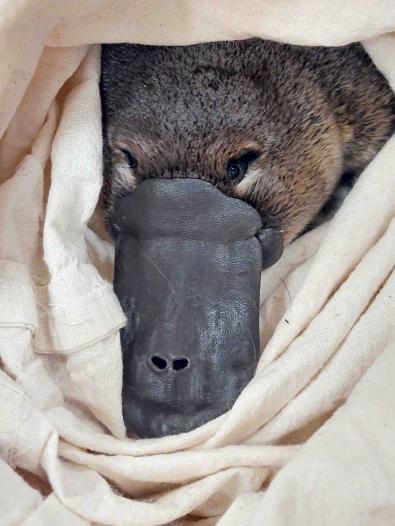
A new record: Oldest platypus found in the wild
A Melbourne Water waterways monitoring program has led to the discovery of a 24-year-old male platypus – the oldest ever recorded in the wild - astounding researchers and biologists.
The Urban Platypus Program (MWUPP), in association with Ecology Australia and Cesar performs sampling to gather population health data of these cryptic monotremes.
The male platypus was estimated to be one year old when he was first captured and tagged as a sub-adult in November 2000. Due to the isolation of the Monbulk Creek platypus population, he will have lived in Monbulk Creek his entire life.

He was recaptured in April 2023 when the discovery was made, then again in September; scanning the tag aged this platypus 3 years senior to the previously oldest known wild platypus; a female in the upper Shoalhaven River in New South Wales at 21 years old.
Al Danger, Senior Asset Manager for Service Enablement Catchments & Waterways at Melbourne Water who runs the MWUPP, co-authored a study paper focused on the discovery, as part of research into platypus longevity.
“It’s been very exciting to discover our record-breaking platypus; his age has far exceeded our expectations for life expectancy. His condition was excellent for his age. There was no noticeable indication he was so old, just some wear and tear on his spurs.” Dr. Danger says.
“He's survived living in an urban environment, frequent flood events, avoided predators like cats, dogs and foxes, dodged litter entanglement and survived the millennium drought during the 2000's.”
Platypus are listed as ‘vulnerable’ in Victoria. Melbourne Water conducts surveys using specialized nets to help catch the platypus with the aim of tracking their health over time.
To help protect our platypus, Melbourne Water look after our waterways in many ways; through revegetation programs, providing environmental flows, stormwater reduction, condition monitoring and program evaluation, community advocacy and working with land holders on our river frontage projects.
Community observations of platypus also provide researchers with useful information. This helps build knowledge of local platypus populations and guide conservation and management efforts. If you would like to participate in a platypus spotting session, go to the platypusSPOT.org website.
Media contact:



